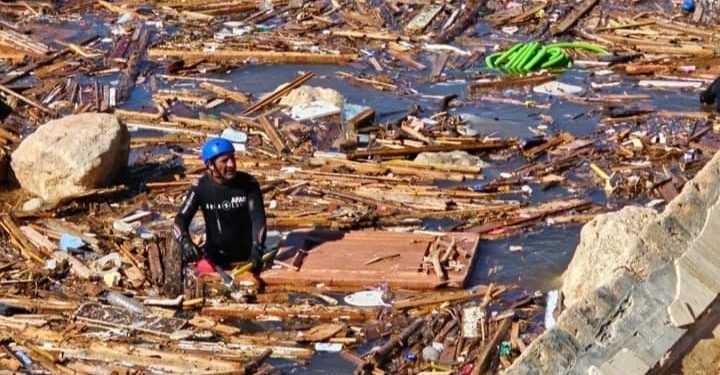European Union Commission has continued delivery of humanitarian assistance to Libya flooding through its Civil Protection Mechanism.
According to the Commission on Thursday, stated that new offers from EU Member States include: a medical team of 53 people from France; shelter items, heavy machinery, including rubble removal trucks.
Also, one diving specialised team with three zodiac boats and two transport vehicles, and two search, rescue helicopters from Italy; one technical expertise team, including IT, logistics and mapping experts from the Netherlands.
These offers come in addition to assistance already provided by Germany, Romania and Finland in the form of shelter items, generators, food items, as well as hospital tents and water tanks channelled via the Mechanism.
Furthermore, the EU released on Wednesday, 13th September, an initial €500,000 in humanitarian funding to tackle the most urgent needs of people in Libya affected by the impact of Storm Daniel.
While EU humanitarian aid experts are being deployed to the field to rapidly assess the emerging humanitarian needs on ground with Emergency Response Coordination Centre stands ready to coordinate further offers of assistance.

Commissioner for Crisis Management, Janez Lenarčič, said: “The flood emergency in Libya triggered prompt support from EU Member States.
New offers from France, Italy and the Netherlands of medical personnel and equipment, rescue boats, helicopters and other vital aid have been made available to strengthen the response.
“I thank all the EU Member States who are channelling their generous support and helping to save lives in this critical emergency”, the Commissioner added.

In the latest report, the Authorities in eastern Libya said at least 5,000 people were killed and thousands more were missing after a massive flood ripped through the city of Derna following a heavy storm and rain.
Ahmed Mismari, the spokesperson for the Libyan National Army (LNA) that controls eastern Libya, said in a televised news conference that the disaster came after dams above Derna had collapsed, “sweeping whole neighbourhoods with their residents into the sea”.
Also reported that one of the worst-hit regions was the port city of Derna in eastern Libya, which was declared a disaster zone after two dams there collapsed and large parts of it were submerged, cutting off communications and electricity.













